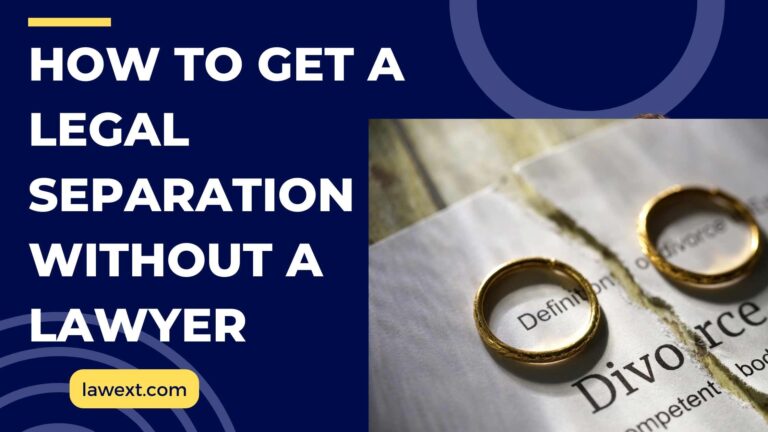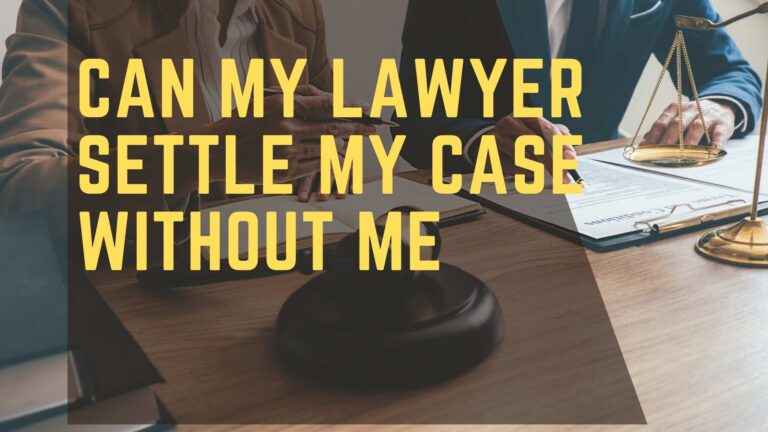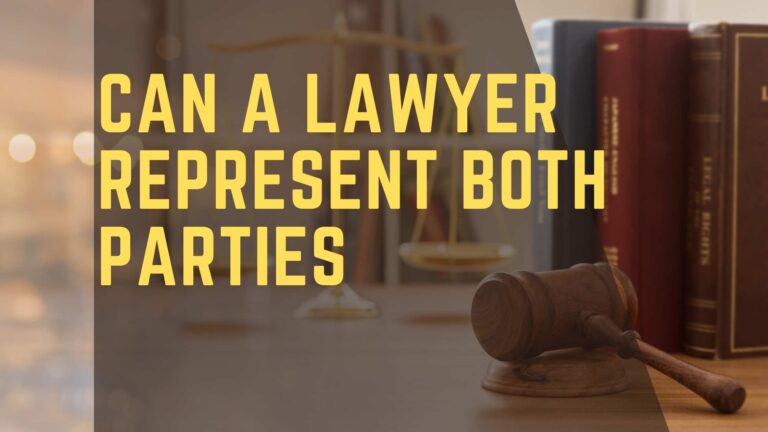Do I Need a Lawyer for a Restraining Order Hearing?
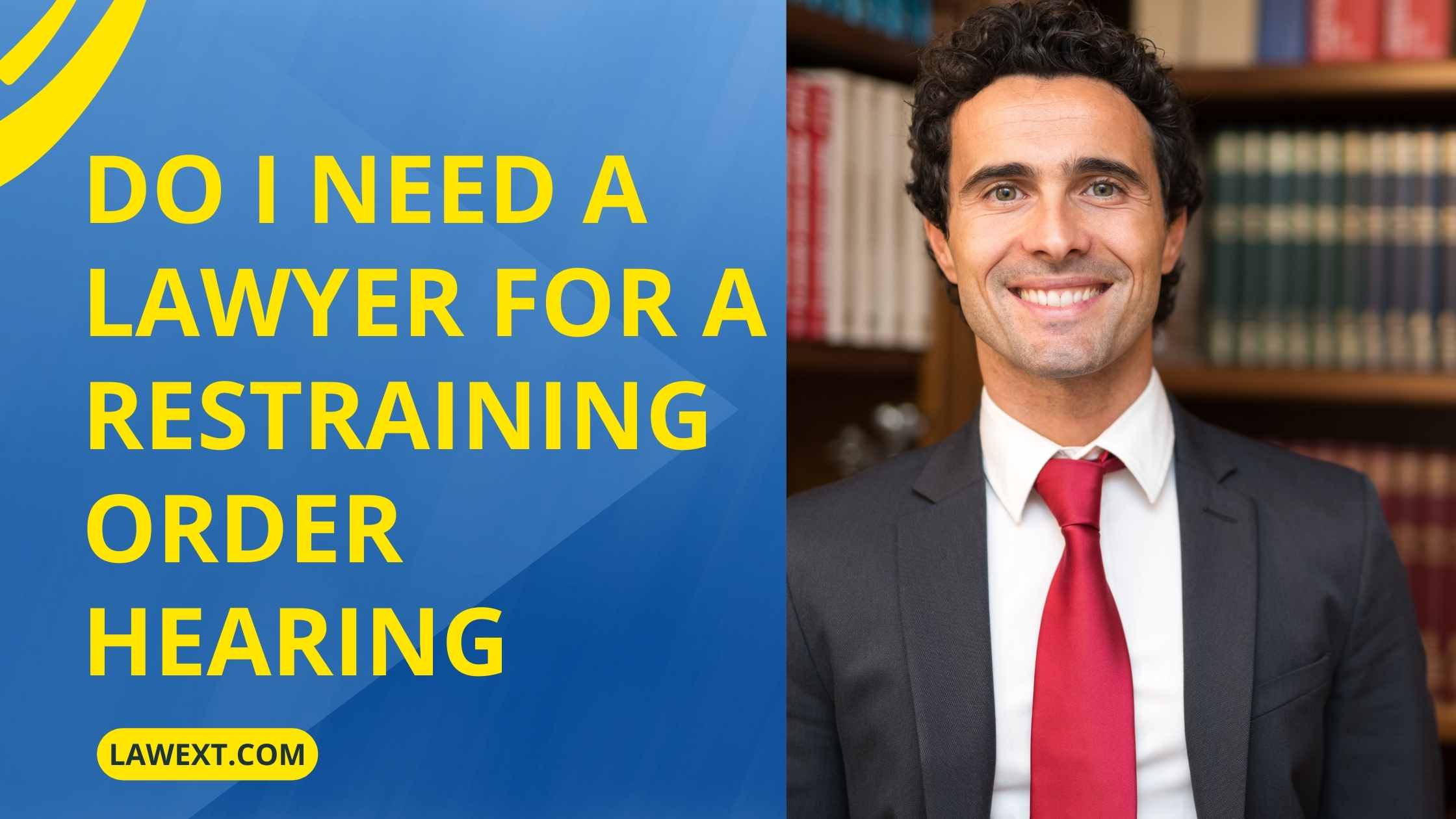
Yes, it is essential to have a lawyer for a restraining order hearing to navigate the legal process effectively and protect your rights. Restraining orders can be crucial for individuals facing threats or harassment.
Table of Contents
However, the process of obtaining a restraining order involves legal complexities that may require the expertise of a lawyer. Whether you are seeking a restraining order or defending against one, having legal representation during the hearing is highly recommended. This article discusses the importance of having a lawyer by your side during a restraining order hearing, highlighting the reasons why their support can make a significant difference in the outcome of your case.
From understanding the legal requirements to presenting evidence and arguments, a lawyer can guide you to understand Do I Need a Lawyer for a Restraining Order Hearing?
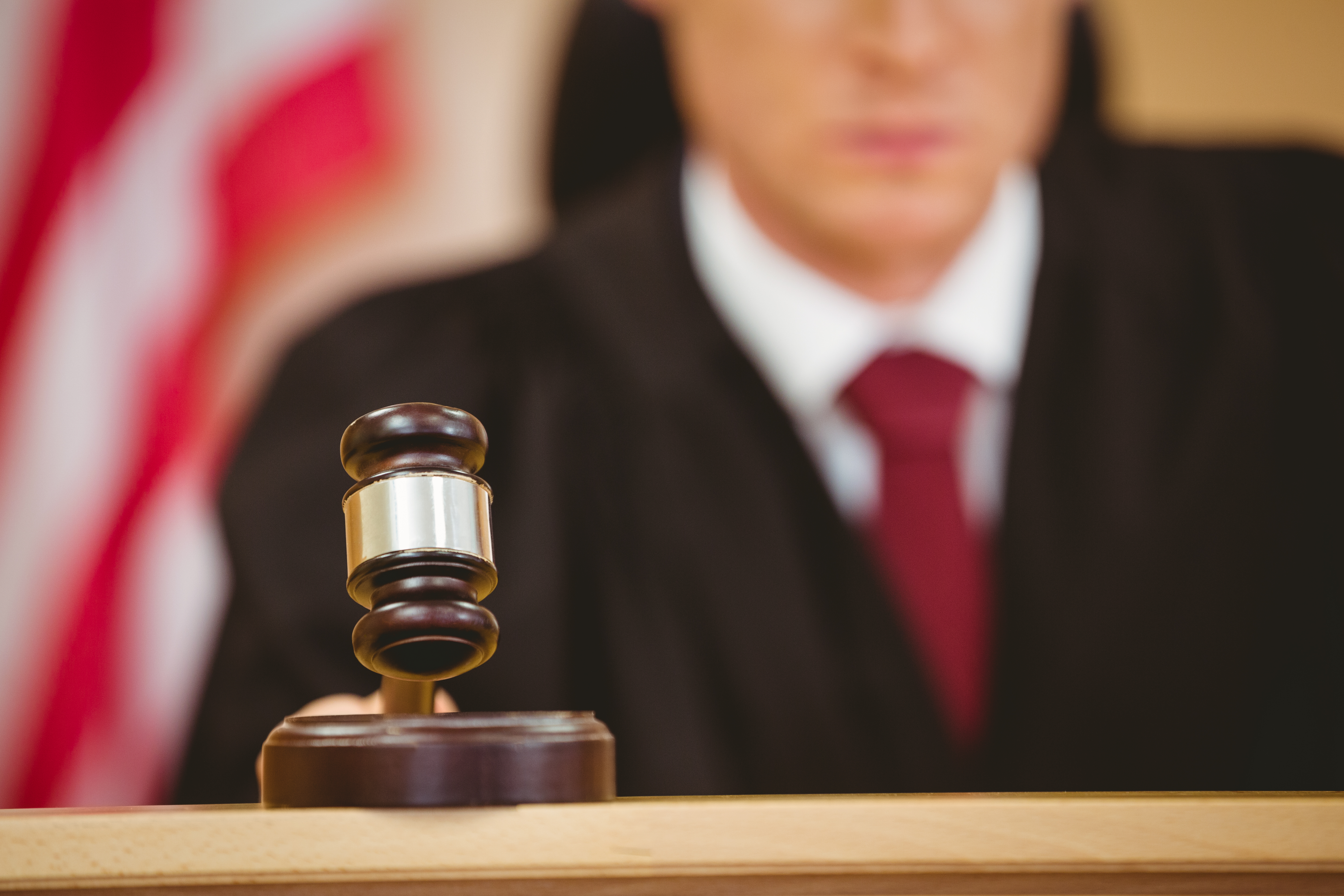
Credit: www.njrestrainingorderlawyers.com
What Is A Restraining Order?
A restraining order is a legal protection that prevents someone from contacting or approaching you. While it is not required to have a lawyer for a restraining order hearing, consulting with one can provide guidance and ensure your rights are protected throughout the process.
Definition
A restraining order is a legal document issued by a court that requires a person to stay away from another individual, their home, workplace, or any other specified location. This order protects the victim by establishing boundaries and preventing further contact or harassment. It serves as a powerful tool in safeguarding the rights and personal safety of individuals who find themselves in threatening or abusive situations.
Purpose
The primary purpose of a restraining order is to provide immediate protection to victims of harassment, domestic violence, stalking, or other forms of abuse. It acts as a legal mechanism to keep the victim safe from further harm by setting clear boundaries and prohibiting the abuser from any contact or specific actions. While the specifics may vary depending on the situation, a restraining order can mandate no contact, no communication, and no physical proximity.
When Do You Need A Restraining Order?
When Do You Need a Restraining Order?
A restraining order is a legal remedy used to protect individuals from harassment, abuse, or violence. There are several types of situations where obtaining a restraining order may be necessary to ensure personal safety and well-being. Whether you’re facing domestic violence, stalking, harassment, or any other form of threat, a restraining order can provide the necessary legal protection.
Signs You Should Seek One
- Any form of physical violence or the threat of physical harm.
- Repeated unwanted contact or communication despite clearly expressing the desire for it to stop.
- Feeling unsafe or threatened by someone’s behavior, whether in person or through electronic communication.
- Unwelcome, persistent stalking characterized by surveillance, following, or monitoring your actions.
- Experiencing emotional abuse, coercion, or controlling behavior from someone.
Regardless of the specific situation, if you feel fearful or at risk due to someone’s actions, you should consider seeking a restraining order to protect yourself.
The Process Of Obtaining A Restraining Order
A restraining order is a legal document that helps protect victims of harassment, abuse, or violence by keeping their abusers away from them. If you find yourself in a situation where you believe you need a restraining order, it is important to understand the process involved. This blog post will guide you through the steps, starting with filing the petition.
Filing The Petition
Before the issuance of a restraining order, you must file a petition with the court. The first step in this process is to gather all necessary evidence and documentation to support your case. This may include police reports, photographs, emails, text messages, and any other relevant proof of the harassment or abuse you have experienced.
Important: Remember to make several copies of all the documents, so you have one for your records and additional copies for the court and the other party involved.
Temporary Restraining Order
Once you have filed the petition, you can request a temporary restraining order (TRO) if you believe you are in immediate danger. The TRO can provide temporary protection while you wait for the hearing. It is essential to note that TROs are typically granted without the abuser’s presence or awareness, so providing detailed and accurate information is crucial to the success of obtaining this order.
Keep in mind: A TRO is only temporary and provides short-term protection until the hearing where a judge will decide whether or not to grant you a restraining order.
Restraining Order Hearing
The final step in the process is the restraining order hearing. This is a formal court proceeding where both parties present their case to a judge. During the hearing, you will have the opportunity to provide evidence, call witnesses, and testify. It is vital to have all your documentation and evidence organized and ready to present.
Tip: If you are unsure about representing yourself during the hearing, consulting an attorney who specializes in restraining order cases can provide valuable guidance and support.
| Important Points |
|---|
| • File the petition, providing clear and compelling evidence of harassment or abuse. |
| • Obtain a temporary restraining order for immediate protection if necessary. |
| • Prepare for the restraining order hearing by organizing evidence and considering legal representation. |
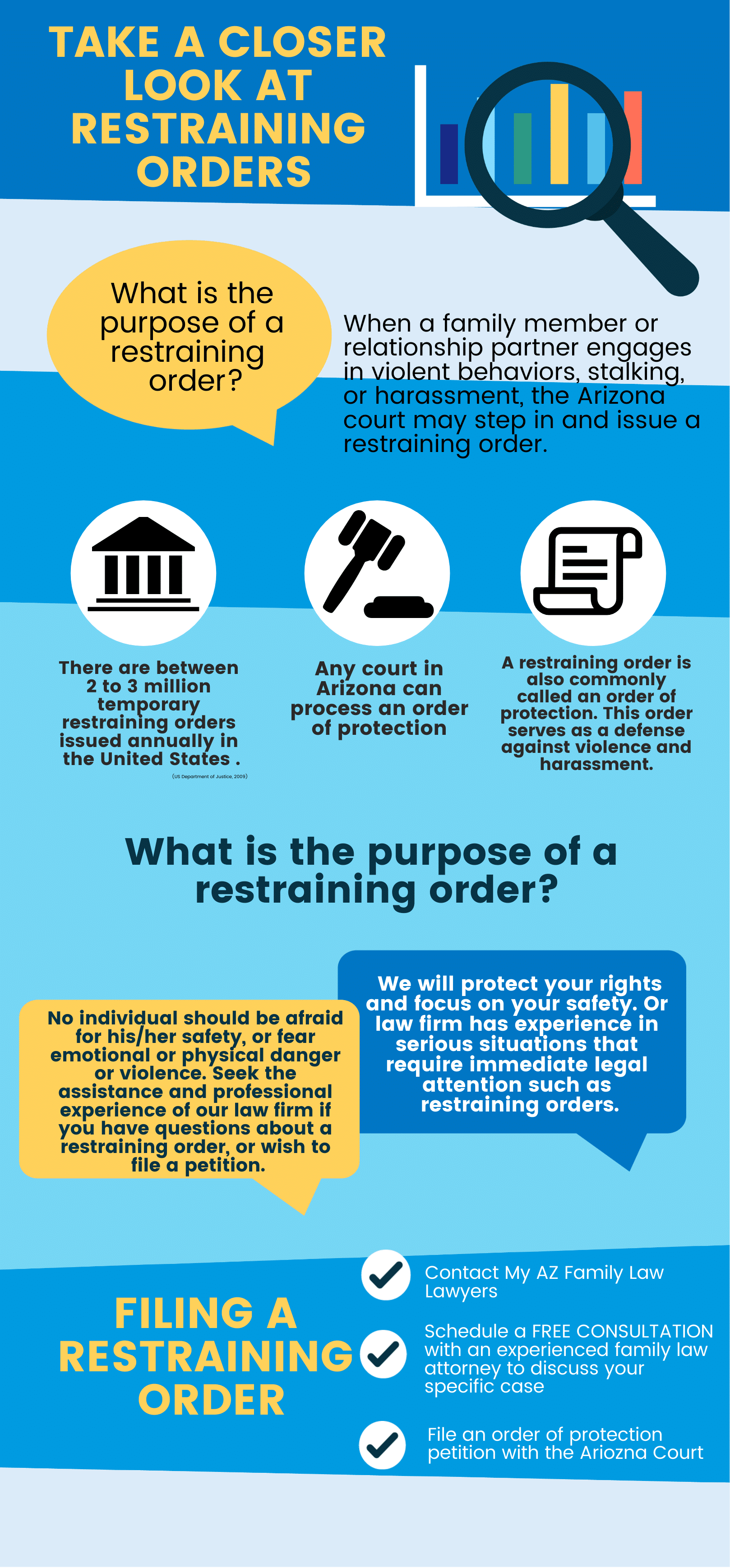
Credit: azfamilylawlawyer.com
While the process of obtaining a restraining order may seem daunting, it is an important step in ensuring your safety and well-being. By following these steps and seeking legal help if needed, you can increase your chances of obtaining a restraining order that safeguards you from further harm.
Do You Need A Lawyer For A Restraining Order Hearing?
A restraining order hearing is a serious legal matter that involves the safety and well-being of individuals. If you find yourself in a situation where you need to request a restraining order, you may be wondering whether or not you need the assistance of a lawyer. While it is possible to represent yourself, there are several factors to consider that highlight the importance of legal representation in such proceedings.
The Importance Of Legal Representation
Hiring a lawyer for a restraining order hearing can greatly benefit your case. A lawyer has the necessary knowledge and experience to navigate the legal system on your behalf. They will understand the intricacies of the law and can help you gather and present evidence, prepare legal documents and present a strong case to the court.
Additionally, a lawyer can provide valuable guidance and support throughout the process, ensuring that you fully understand your rights and options. They can advise you on the best course of action and help you make informed decisions that align with your best interests. Having legal representation can significantly increase your chances of obtaining the restraining order you need to protect yourself.
Advantages And Disadvantages
While representing yourself in a restraining order hearing may seem like a cost-saving option, it is essential to weigh the advantages and disadvantages. Consider the following:
| Advantages | Disadvantages |
|---|---|
|
|
It is important to consider the potential risks and consequences of representing yourself before making a decision. Your safety and well-being are of utmost importance, and having a lawyer by your side can provide the necessary support and expertise.
Tips For Preparing For A Restraining Order Hearing
If you are facing a restraining order hearing, it’s crucial to be well-prepared for the legal process. Preparation can significantly impact the outcome of the hearing. Here are some essential tips to help you prepare effectively for a restraining order hearing.
Gathering Evidence
Collecting compelling evidence is crucial in supporting your case. This evidence can include witness statements, photographs, text messages, emails, or any other documentation that corroborates your side of the story. Ensure that all evidence is organized and clearly labeled to present a convincing argument in the hearing.
Preparing Your Testimony
Crafting a clear and concise testimony is essential. Outline the key points you want to convey and practice coherently articulating them. Refrain from emotional responses and focus on presenting the facts. A well-prepared testimony can strengthen your position during the hearing.
Understanding The Legal Standard
It’s imperative to familiarize yourself with the legal standard required to obtain a restraining order. This may involve understanding the definition of harassment, the burden of proof, and the potential defenses that can be used. Being well-versed in the legal standard can help you effectively navigate the hearing process.
Conclusion
Hiring a lawyer for a restraining order hearing can greatly impact the outcome. Legal professionals understand the complexities and can provide valuable guidance. By having a lawyer on your side, you can ensure that your rights are protected and present a strong case in court.
Don’t underestimate the importance of legal representation in such critical matters.
Amelia Justiceberg, a distinguished legal luminary, thrives on the intersection of empathy and legal acumen. As a prominent family law attorney, she orchestrates compassionate resolutions amidst complex dynamics. Justiceberg's courtroom finesse and dedication to fairness define her practice. Beyond litigation, she ardently advocates for social justice, solidifying her reputation as an influential force in the legal landscape.



